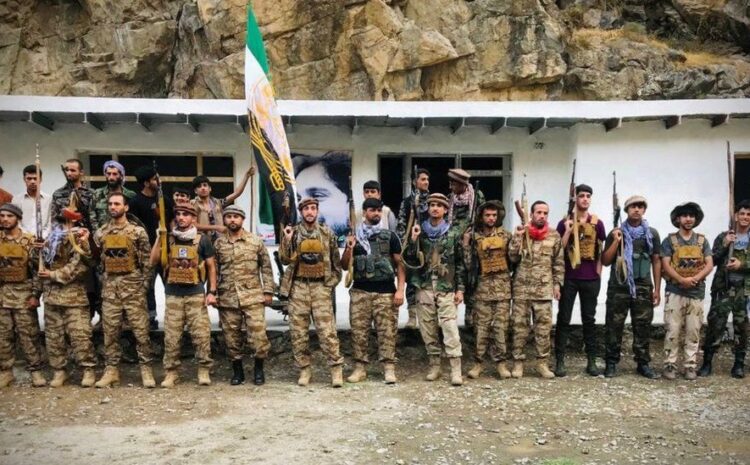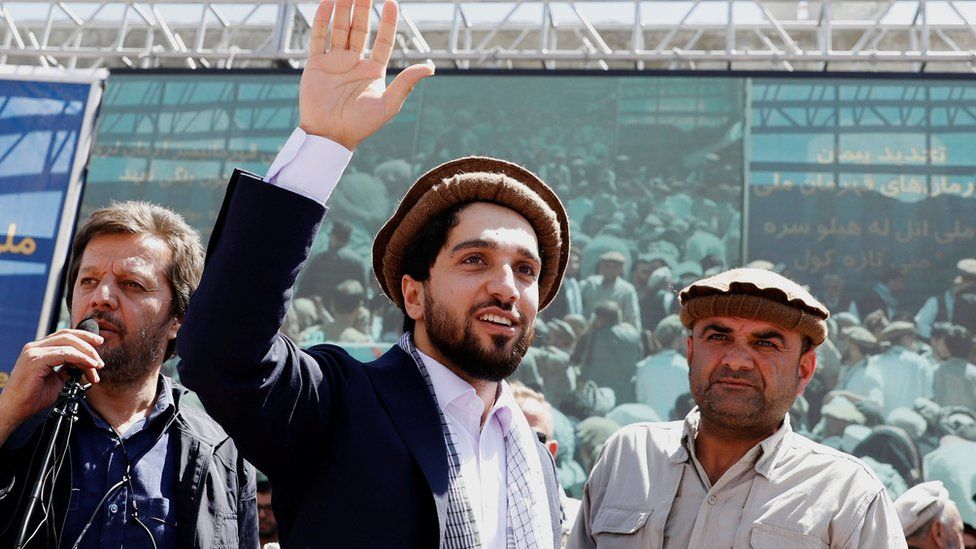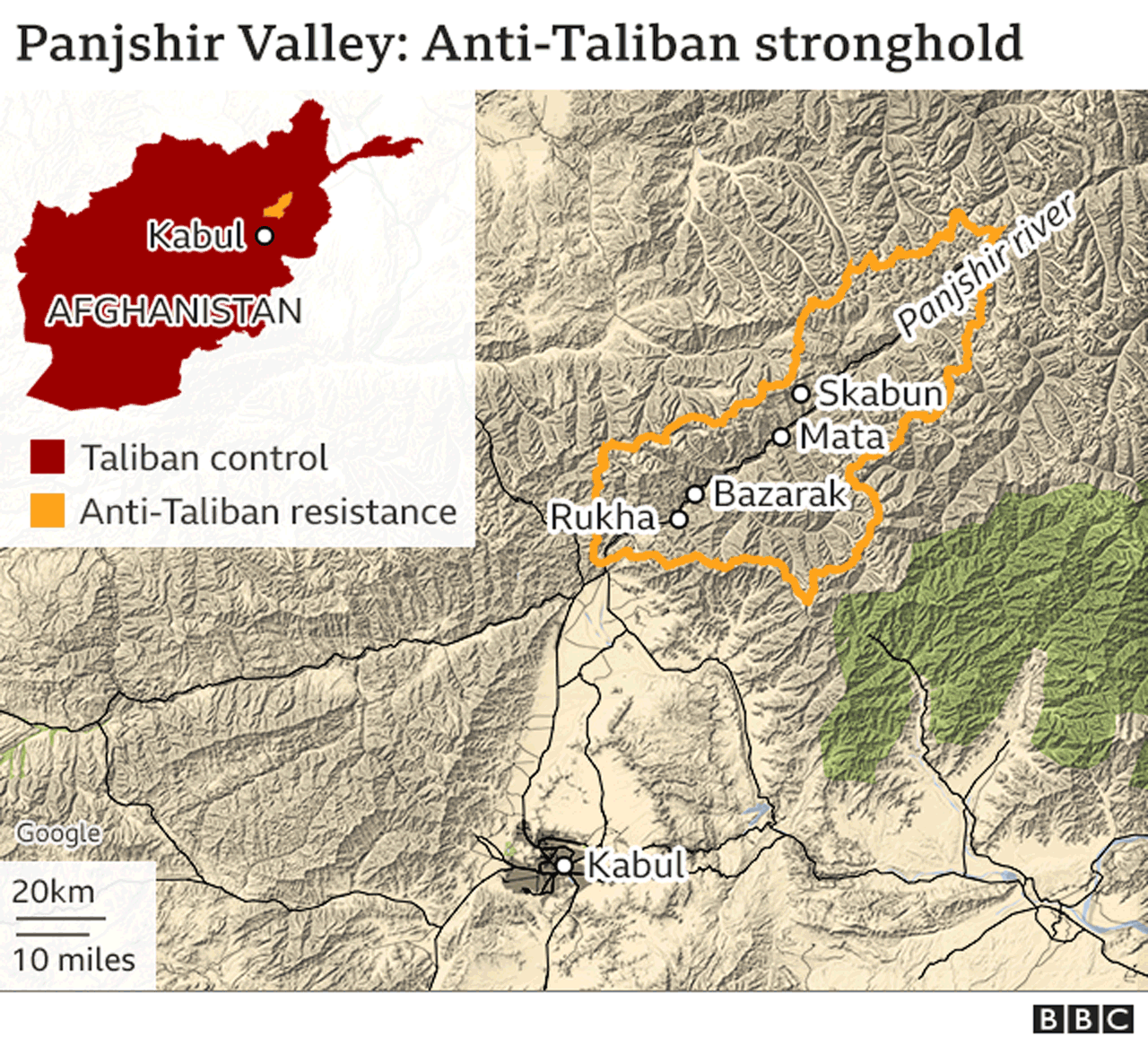
IMAGE SOURCE REUTERS image caption The NRF says it wants to pursue peaceful negotiations before fighting
Ali Nazary, head of foreign relations for the National Resistance Front of Afghanistan (NRF), told the BBC they want to pursue peaceful negotiations.
But, he added, “if this fails… then we’re not going to accept any sort of aggression”.
Meanwhile, the Taliban say they have surrounded the group’s Panjshir valley stronghold and put them under siege.
Resistance figures have also said the Taliban are now advancing in the region, northeast of the capital Kabul.
Amrullah Saleh, who was vice-president in the government ousted by the Taliban and is now based in Panjshir, tweeted that the Taliban had massed forces near the entrance to the valley.
Now, the region is still under the control of the NRF, which was founded by Ahmad Massoud – the son of Afghan resistance hero Ahmad Shah Massoud.
 IMAGE SOURCE REUTERS
IMAGE SOURCE REUTERSAhmad Shah Massoud was a powerful guerrilla commander who led the resistance against the USSR, and then went on to lead the Afghan government’s military wing against rival militias in the 1990s. After the Taliban gained control, he was the main opposition commander against their rule, until his assassination in 2001.
Mr Nazary told BBC Radio 4’s Today programme that Panjshir had had a recent influx of local resistance forces from across the country, who have joined fighters they had already trained locally.
He said the group had “thousands of forces ready for the resistance” – although the BBC has not independently verified this claim.
“However, we prefer to pursue peace and negotiations before any sort of war and conflict,” the spokesman added.
 The NRF’s ultimate goal is a decentralised form of governance in the country.
The NRF’s ultimate goal is a decentralised form of governance in the country.“The NRF believes that for lasting peace we have to address the underlying problems in Afghanistan,” he continued. “Afghanistan is a country made up of ethnic minorities, no one is a majority. It’s a multicultural state, so it needs power sharing – a power-sharing deal where everyone sees themselves in power.”
Having one group dominating politics will lead to “internal warfare and the continuation of the current conflict,” he said.
“We prefer peace, we prioritise peace and negotiations,” Mr Nazary added. “If this fails – if we see that the other side is not sincere, if we see that the other side is trying to force itself on the rest of the country – then we’re not going to accept any sort of aggression.
“And we’ve proven ourselves, our track record in the past [40 years] has shown that no-one is able to conquer our region, especially the Panjshir Valley.
“The Red Army, with its might, was unable to defeat us… I don’t think any force right now in Afghanistan has the might of the Red Army. And the Taliban also 25 years ago… they tried to take over the valley and they failed, they faced a crushing defeat.”
